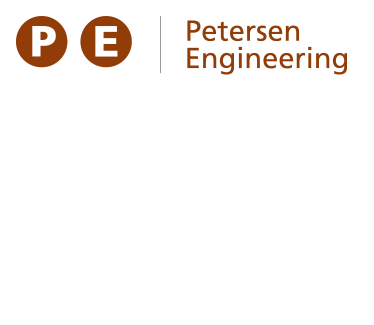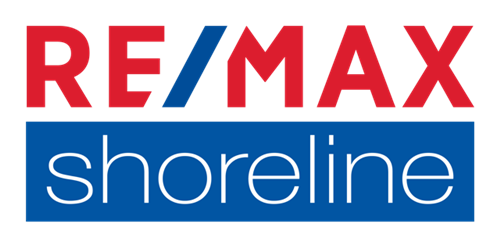Rotary Log: April 12, 2012 (Governor Lynch)
The meeting began with general announcements. Among the announcements, John Pappas reminded us to fill out a Vocational Awards form to nominate worthy members of our community. Finalists will be selected in June by the committee chaired by John. Joanie Dickinson reminded us about the upcoming wine raffle. Tickets are $10. We were also reminded that next week’s meeting will not be held at noon. Instead, the meeting will begin at 7 pm for our annual auction. Tickets will be available at the door for $17.
Jay Gibson introduced our guest speaker, and Jay’s former UNH roommate, none other than Governor John Lynch. The connection between the two apparently runs deep. The Governor was also Jay’s big brother at their fraternity. Governor Lynch also served as Jay’s best man at his wedding a mere 38 years ago! Jay was about to regale us with some classic collegial bawdy tales about a certain “Rosemarie,” but stayed true to his promise to withhold such tales until retirement—retirement in 3, 2, 1 ….!
Governor Lynch, who is now serving his fourth term, informed us about the remarkable accomplishments the state has achieved during his tenure. The state has garnered awards for being the most livable (3 years in a row), the safest, the healthiest for children and the list goes on. New Hampshire boasts an unemployment rate of about 5%, 40% lower than the national average. The good Governor remarked how the only states with lower unemployment rates (3 in total) don’t matter—states with big areas, but low populations. It is also considered the best educated state. We all have much to be proud.
The Governor next reminisced at bit about some of his old colleagues in public service including the Scammans and Ruth Griffin.  And last, but not least, our peripatetic Rotarian journeyman and former Chairman of the State Board of Education, John Lyons, was fined by the Governor for simply standing up. Well done Governor Lynch for honoring our club’s time-honored tradition of fining John whenever he graces us with his presence.
And last, but not least, our peripatetic Rotarian journeyman and former Chairman of the State Board of Education, John Lyons, was fined by the Governor for simply standing up. Well done Governor Lynch for honoring our club’s time-honored tradition of fining John whenever he graces us with his presence.
The central thrust of the Governor’s presentation focused on the critical importance of education as a foundation for our economy and our future. Of all the metrics studied, education has proven to be the only metric that can be shown statistically to drive job growth. Apparently, study after study has shown this to be true. Fully 80% of prison inmates lack a high school diploma. And dropout rates across the country are at epic proportions with one notable exception—New Hampshire. New Hampshire’s current dropout rate is less than 1%. The goal is 0%.
As part of a broad plan to make education a state prerogative, the Governor supports a constitutional amendment currently working its way through the legislature. Although it enjoys broad support in the Senate, some members of the House are advancing the cause of local control over education. Another main goal is to eliminate the specter of donor towns. The Governor has opposed the creation of donor towns since his first day in office in 2004.
The Governor then gave us a breakdown of the state’s current spending on education. New Hampshire currently ranks 50th for least amount of funds spent on education. Last year, the legislature cut public education spending by 50% to address severe budget shortfalls. The Governor explained this will impact the amount of funds spent to keep the cost of in-state tuitions down and may lead to more out-of-state students attending NH colleges and universities. The average debt of a UNH graduate is now $33,000, which is comparable to the debt load experienced by graduates at private institutions such as BU, BC and Georgetown.
The Governor next turned his attention to the state economy and economic development. In his words, education plus jobs plus economic development equal success. During his tenure, 12,000 workers have received state-funded training. Companies are setting up shop in New Hampshire because of the available supply of trained workers. Infrastructure improvements are taking place all over the state. The Hooksett tolls will soon include open road tolling like the Hampton tolls we all enjoy. The Hampton Shell has been renovated to the tune of $14,000,000. Further re-development is expected in the area as a result.
The last part of the Governor’s speech touched upon his annual tradition of meeting with 4th graders from schools throughout the state. One class sang a song dear to him from his youth with the words changed to make it a personal tribute that moved the Governor.
Next up was Q&A time handled with aplomb by our intrepid question translator, Bill Hurley. First up, what is the Governor’s position on health care reform? The Governor believes it is needed as NH businesses are experiencing consistent pernicious margin erosion due in large part to the escalation of health care premiums. The state currently spends $10 billion on health care that represents 18.5% of gross state product. At 20-25%, the expected growth curve of health care spending, investment dollars are significantly reduced. The solution—steer away from “fee for service” and “utilization” to a managed care model of health care delivery. In other words, use the managed care approach to bend the cost curve down. Another solution is to bring about more transparency with respect to the services offered. As an example, colonoscopies in Manchester can range anywhere from $1,500 to $10,000. More competition at the point where disease is treated is currently being tested to reduce the dramatic cost discrepancies.
Question 2—Does the Governor support funding for the disabled? Yes. In fact, three vendors are currently being interviewed to provide these services state-wide in an attempt to rein in costs. The Governor’s answer segued into the $300 million being cut out of payments to hospitals to suggest the universal model is broken. Block grants to the state of $100 million have been reduced to $50 million, so more streamlining is needed.
The Governor then went into a discussion about the importance of technology and how it is changing the way students learn from middle school and up. In his day, he would go to the Diamond Library at UNH to find a nice corner to study, sleep, no—study. Now, students use DVD’s, cell phones, IPads, IPods, computers, etc. to learn. Virtual classrooms are becoming commonplace and UNH is working to harness the model to advance its online courses.
Speaking of UNH, the university receives about $100 million each year from research from the federal government. The university is looking to commercialize its research to generate additional funds for the university.
Last question—is the governor interested in running for President of the US? In a word—NO.
Download the website sponsorship guide

/lynch005.jpg)












